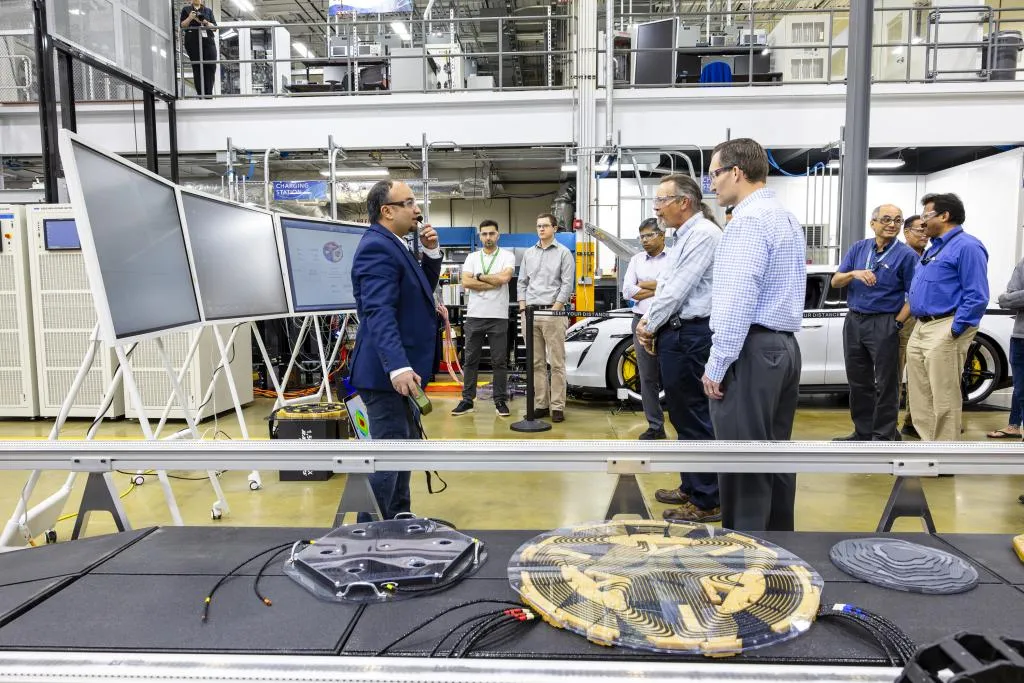- A Porsche Taycan wireless charged at a rate of 270 kw
- The Department of Energy’s Oak Ridge National Laboratory (ORNL) partnered with Volkswagen Group for the test
- No timeline was given to put a system like this in production, but testing will continue
In a recent test, the Department of Energy’s Oak Ridge National Laboratory (ORNL) wirelessly charged a Porsche Taycan at 270 kw, setting what researchers claim is a new record for wireless charging of light-duty vehicles.
Existing wireless-charging systems for light-duty vehicles charge at much lower power levels, ORNL noted in a press release. Commercially-available hardware generally reaches 11 kw with 92% efficiency, according to ORNL, and standards cover power levels of up to 20 kw. A system deployed in 2020 with a fleet of Jaguar I-Pace taxis in Oslo, Norway, was able to achieve 50 kw in 6-8 minute bursts.
Oak Ridge National Laboratory tests 270-kw wireless EV charging system
However ORNL claims its system, which was tested in collaboration with Volkswagen Group of America as part of a research project announced in 2021, can rival the power of many conventional DC fast-charging stations, with 95% efficiency. It can also achieve a 50% increase in state of charge in 10 minutes, ORNL claims.
The system uses lightweight polyphase electromagnetic coils measuring just over 19 inches in diameter, which ORNL claims allows for the highest power density possible. The receiver coil mounted on the underside of the Taycan is in fact 8 to 10 times more power dense than existing systems, lead researcher Omer Onar said in a statement. Charging was conducted with a 4.75-inch gap between the coils on the car and the ground.

Oak Ridge National Laboratory tests 270-kw wireless EV charging system
This hardware could allow for higher-power wireless charging without bulky components that would be difficult to package in passenger cars, according to ORNL. The lab will continue to work with VW Group of America to bring the system closer to production readiness, but no firm timeline was given.
In the meantime, a handful of companies offer their own wireless charging systems. Tesla appeared to have purchased one of those companies, the German firm Wiferion, in 2023, hinting that the automaker was moving ahead with plans to offer wireless charging for its vehicles.


